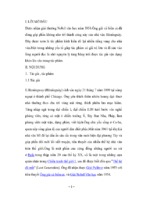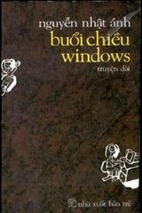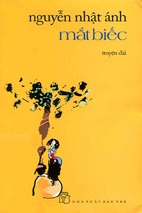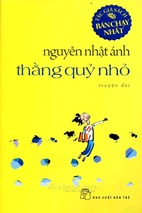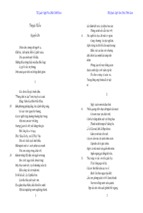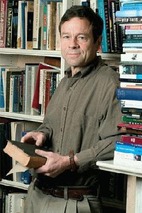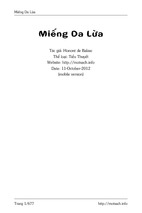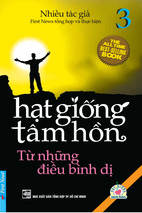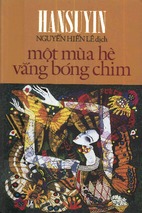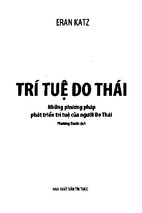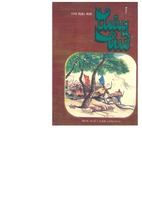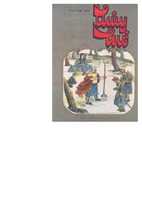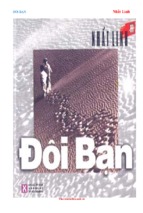KANE AND ABEL
by
JEFFREY ARCHER
CORONET BOOKS
Hodder and Stoughton
To Michael and Jane
Copyright (g~ 1979 by Jeffrey Archer
First published in Great Britain 1979 by Hodder and Stoughton Limited
Coronet edition, September 1980
The characters and sltuations In this book are entirely Imaginary and
bear no relation to any real person or actual happening
This book Is sold subject to the condition that It shall not, by way of
trade or otherwise, be lent, re-sold, hired out or otherwise circulated
without the publisher's prior consent in any form of blndlng or cover
other than that In which this Is published and without a similar
condition Including this condition being Imposed on the subsequent
purchaser.
Printed in Canada
ISBN 0 340 25733 4
Also by the same author, and available in Coronet Books:
Not A Penny More, Not A Penny Less
Shall We Tell The President?
Acknowledgments
The author would like to thank the two men who made this
book possible. They both wish to remain anonymous, one
because he is working on his own autobiography and the
other because he is still a public figure in the United States.
Book One
April 18th, 19o6
Slonim, Poland
She only stopped screaming when she died. It was then that he started to
scream.
The young boy who was hunting rabbits in the forest was not sure whether it
had been the woman's last cry or the child's first that alerted him. He
turned suddenly, sensing the possible danger, his eyes searching for an
animal that was so obviously in pain. He had never known any animal to
scream in quite that way before. He edged towards the noise cautiously; the
scream had now turned to a whine but it still did not sound like any animal
he knew. He hoped it would be small enough to kill; at least that would
make a change from rabbit for dinner.
The young boy moved stealthily towards the river, where the strange noise
came from, running from tree to tree, feeling the protection of the bark
against his shoulder blades, something to touch. Never stay in the open,
his father had taught him. When he reached the edge of the forest, he had
a clear line of vision all the way down the valley to the river, and even
then it took him some time to realise that the strange cry ernanated from
no ordinary animal. He continued to creel) towards the whining, but he was
out in the open on his own now. Then suddenly he saw the woman, with her
dress above her waist, her bare legs splayed wide apart. He had never seen
a woman like that before. He ran quickly to her side and stared down at her
belly, quite frightened to touch. There, lying between the woman's legs,
was the body of a small, damp, pink animal, attached by
I'l
something that looked like rope. The young hunter dropped his freshly
skinned rabbits and collapsed on his knees beside the little creature.
He gazed for a long, stunned moment and then turned his eyes towards the
woman, immediately regretting the decision. She was already blue with
cold; her tired twentythree-year-old face looked middle-aged to the boy;
he did not need to be told that she was dead. He picked up the slip~ery
little body - had you asked him why, and no one ever did, he would have
told you that the tiny fingernails clawing the crumpled face had worried
him - and then he became aware that mother and child were inseparable
because of the slimy rope.
He had watched the birth of a lamb a few days earlier and he tried to
remember. Yes, that's what the shepherd had done, but dare he, with a
child? The whining had stopped and he sensed that a decision was now
urgent. He unsheathed his knife, the one he had skinned the rabbits with,
wiped it on his sleeve and hesitating only for a moment, cut the rope
close to the child's body. Blood flowed freely from the severed ends.
Then what had the shepherd done when the lamb was born? He had tied a
knot to stop the blood. Of course, of course; he pulled some grass out
of the earth beside him and hastily tied a crude knot in the cord. Then
he took the child in his arms. He rose slowly from his knees, leaving
behind him three dead rabbits and a dead woman who had given birth to
this child. Before finally tun-iing his back on the mother, he put her
legs together, and pulled her dress down over her knees. It seemed to be
the right thing to do.
'Holy God,' he said aloud, the first thing he always said when he had
done something very good or very bad. He wasn't yet sure which this was.
The young hunter then ran towards the cottage where he knew his mother
would be cooking supper, waiting only for his rabbits; all else would be
prepared. She would be wondering how many he might have caught today;
with a family of eight to feed, she needed at least three. Sometimes he
man-
14
aged a duck, a goose or even a pheasant that had strayed from the Baron's
estate, on which his father worked. Tonight he had caught a different
animal, and when he reached the cottage the young hunter dared not let go of
his prize even with one hand, so he kicked at the door with his bare foot
until his mother opened it. Silently, he held out his offering to her. She
made no immediate move to take the creature from him but stood, one hand on
her breast, gazing at the wretched sight.
'Holy God,' she said and crossed herself. The boy stared up at his mother's
face for some sign of pleasure or anger. Her eyes were now showing a
tenderness that the boy had never seen in them before. He knew then that
the thing which he had done must be good.
'Is it a baby, Matka?'
'Ies a little boy,' said his mother, nodding her head sorrowfully, 'Where
did you find him?'
'Down by the river, Matka.' he said.
'And, the mother?'
'Dead.'
She crossed herself again.
'Quickly, run and tell your father what has happened. He will find Urszula
Wojnak on the estate and you must take them both to the mother, and then be
sure they come back here.'
The young hunter handed over the little boy to his mother, happy enough not
to have dropped the slippery creature. Now, free of his quarry, he rubbed
his hands on his trousers and mn off to look for his father.
The mother closed the door with her shoulder and called out for her eldest
child, a girl, to put the pot on the stave. She sat down on a wooden stool,
unbuttoned her bodice and pushed a tired nipple towards the little puckered
mouth. Sophia, her youngest daughter, only six months old, would have to go
without her supper tonight; come to think of it, so would the whole family.
'And to what purpose?' the woman said out loud, tucking a shawl around her
arm and the child together. 'Poor little mite, yotill be dead by mon-iing.'
13
But she did not repeat those feelings to old Urszula Wojnak when the
midwife washed the little body and tended to the twisted umbilical stump
late that night. Her husband stood silently by observing the scene.
'When a guest comes into the house, God comes into the house,' declared
the woman, quoting the old Polish proverb.
Her husband spat. 'To the cholera with him. We have enough children of
our ovvn~
T11e woman pretended not to hear him as she stroked the dark, thin hairs
on the baby's head.
'What shall we call hixnT the woman asked, looking up at her husbancL
He shmgge-d. "Who cares? Let him go to his grave nameless,"
April x8tli, 19o6
Boston, Massachusetts
The doctor picked up the newborn child by the ankles and slapped its
bottom The infant started to cry.
In Boston, Massachusetts, there is a hospital that caters mainly for
those who suffer from the diseases of the rich, and on selected occasions
allom itself to deliver the new rich. At the Massachusetts General
Hospital the mothers don,t scream, and certainly they don!t give birth
fully dressed. it is not the done thing.
A young man was pacing up and down outside the deEvery room; insides two
obstetricians and the family doctor were on duty. This father did not
believe in taking risks with his first born. The two obstetricians would
be paid a large fee merely to stand by and witness events. One of thems
who wore evening clothes under his long white coat, had a dinner party
to attend later, but he could not afford to absent himself from this
particular birth. ne three had
16
earlier drawn straws to decide who should deliver the child, and Doctor
MacKenzie,, the family G.P., had won. A sound, secure name, the father
considered, as he paced up and down the corridor. Not that he had any
reason to be anxious. Roberts had driven his wife, Anne, to the hospital
in the hansom carriage that morning, which she had calculated was the
twenty-eighth day of her ninth month. She had started labour soon after
breakfast, and he had been assured that delivery would not take: place
until his bank had closed for the day. The father was a disciplined man
and saw no reason why a birth should interrupt his well-ordered life.
Nevertheless, he continued to pace. Nurses and young doctors hurried past
him, aware of his presence, their voices lowered when they were near him,
and raised again only when they were out of his earshot. He didn't notice
because everybody had always treated him that way. Most of them had never
seen him in person; all of them knew who he was.
If it was a boy, a son, he would probably build the new children's wing
that the hospital so badly needed. He had already built a library and a
school. The expectant father tried to read the evening paper, looking
over the words but not taking in their meaning. He was nervous, even
worried. It would never do for them (he looked upon almost everyone as
'them') to realise that it had to be a boy, a boy who would one day take
his place as president of the bank. He turned the pages of the Evening
Transcript. The Boston Red Sox had beaten the New York Highlanders others would be celebrating. Then he recalled the headline on the front
page and returned to it. The worst-ever earthquake in the history of
America. Devastation in San Francisco, at least four hundred people dead
- others would be mourning. He hated that. That would take away from the
birth of his son. People would remember something else had happened on
that day. It never occurred to him, not even for a moment, that it might
be a girl. He turned to the financial pages and checked the stock market,
down sharply; that damned earthquake had taken one hundred thousand
dollars off the value of Es own holdings in the bank, but as his personal
17
fortune remained comfortably over sixteen million dollars, it was going
to take more than a Californian earthquake to move him. He could now live
off the interest from his interest, so the sixteen million capital would
always remain intact, ready for his son, still unborn. He continued to
pace and pretend to read the Transcript,
The obstetrician in evening dress pushed through the swing doors of the
delivery room to report the news. He felt he must do something for his
large unearned fee and he was the most suitably dressed for the
announcemenL The two men stared at each other for a moment. The doctor
also felt a little nervous, but he wasn't going to show it in front of
the father.
'Congratulations, sir, you have a son, a fine-looking little boy. 0
What silly remarks people make when a child is born ' the father thought;
how could he be anything but little? The news hadn't yet dawned on him
- a son. He almost thanked God. The obstetrician ventured a question to
break the silence.
'Have you decided what you will call him?'
The father answered without hesitation. 'William Lowell Kane.'
3
Long after the excitement of the baby's arrival had passed and the rest
of the farnily had gone to bed, the mother remained awake with the little
child in her arms. Helena Koskiewicz believed in life, and she had borne
nine children to prove it. Although she had lost three in infancy, she had
not let any of them go easily.
Now at thirty-five she knew that her once lusty jasio would give her no
more sons or daughters. God had given her this one; surely he was
destined to live. Helena's was a
18
simple faith, which was good, for her destiny was never to afford her more
than a simple life. She was grey and thin, not through choice but through
little food, hard work, and no spare money. It never occurred to her to
complain but the lines on her face would have been more in keeping with
a grandmother than a mother in today's world. She had never worn new
clothes evep once in her life.
Helena squeezed her tired breasts so hard that dull red marks appeared
around the nipples. Little drops of milk squirted out. At thirty-five,
halfway through life's contract, we all have sorne useful piece of
expertise to pass on and Helena Koskiewicz's was now at a premium.
'Matka's littlest one,' she whispered tenderly to the child, and drew the
milky teat across its pursed mouth. The blue eyes opened and tiny drops
of sweat broke out on the baby's nose as he tried to suck. Finally the
mother slumped unwillingly into a deep sleep.
Jasio Ko-kiewicz, a heavy, dull man with a full moustache, his only
gesture of self-assertion in an otherwise servile existence, discovered
his wife and the baby asleep in the rocking chair when he rose at five.
He hadn't noticed her absence from their bed that night. He stared down
at the bastard who had, thank God, at least stopped wailing. Was it dead?
Jasio considered the easiest way out of the dilemma was to get himself
to work and not interfere with the intruder; let the woman worry about
life and death: his preoccupation was to be on the Baron's estate by
first light. He took a few long swallows of goat's milk and wiped his
luxuriant moustache on his sleeve. Then he grabbed a hunk of bread with
one hand and his traps with the other, slipping noiselessly out of the
cottage for fear of waking the woman and getting himself involved. He
strode away towards the forest, giving no more thought to the little
intruder other than to assume that he had seen him for the last time.
Florentyna, the elder daughter, was next to enter the kitchen, just
before the old clock, which for many years had kept its own time, claimed
that six a.m. had arrived. It was
19
of no more than ancillary assistance to those who wished to know if it was
Ehe hour to get up or go to bed. Among Florentyna's daily duties was the
preparatioA of the breakfast, in itself a minor task involving the simple
division of a skin of goat's milk and a lump of rye bread among a family
of eight. Nevertheless, it required the wisdom of Solomon to carry out the
task in such a way that no one complained about another's portion.
Florentyna struck those who saw her for the first time as a pretty,
frail, shabby little thing. It was unfair that for the last three years
she had had only one dress to wear, but those who could separate their
opinion of the child from that of her surroundings understood why Jasio
had fallen in love with her mother. Florrentyna's long fair hair shone
while her hazel eyes sparkled in defiance against the influence of her
birth and diet.
She tiptoed up to the rocking chair and stared down at her mother and the
little boy whom she had adored at first sight. She had never in her eight
years owned a doll. Actually she had only seen one once, when the family
had been invited to a celebration of the feast of St. Nicholas at the
Baron's castle. Even then she had not actually touched the beautiful
object, but now she felt an inexplicable urge to hold this baby in her
arms. She bent down and eased the child away from her mother and, staring
down into the little blue eM - such blue eyes - she began to hum. The
change of temperature from the warmth of the mother's breast to the cold
of the little girl's hands made the baby indignant. He immediat(-Iy
started crying which woke the mother, whose only reaction was of guilt
for ever having fallen asleep.
'Holy God, hes still alive,' she said to Florentyna. Tou prepare
breakfast for the boys while I try to feed him again!
Florentyna reluctantly handed the infant back and watched her mother once
again pump her aching breasts. The little girl was mesmerised.
'Hurry up, Florcia,' chided her mother, 'the rest of the family must cat
as well.'
20
Florentyria obeyed, and as her brothers arrived from the loft where they
all slept, they kissed their mother's hands in greeting and stared at the
newcomer in awe. All they knew was that this one had not come from
Mother's stomach. Florentyna was too excited to cat her breakfast that
morning, so the boys divided her portion among them without a second
thought and left their mother's share on the table. No one noticed, as
they went about their daily tasks, that their mother hadn't eaten
anything since the baby's arrival.
Helena Koskiewicz was pleased that her children had learned so early in
life to fend for themselves. They could feed the animals, milk the goats
and cows, tend the vegetable garden, and go about their daily tasks
without her help or prodding. When jasio returned home in the evening she
suddenly reabsed that she had not prepared supper for him, but that
Florentyna had taken the rabbits from Franck, her brother the hunter, and
had already started to cook them. Florentyna was proud to be in charge
of the evening meal, a responsibility she was entrusted with only when
her mother was unwell, and Helena Koskitwicz rarely allowed herself that
luxury. The young hunter had brought home four rabbits and the father six
mushrooms and three potatoes: tonight would be a veritable feast.
After dinner, jasio Koskiewicz sat in his chair by the fire and studied
the child properly for the first time. Holding the little baby under the
Armpits, with his two thumbs supporting the helpless neck, he cast a
trapper's eye over the infant. Wrinkled and toothless, the face was
redeemed only by the fine, blue, unfocusing eym Directing his gaze
towards the thin body, something immediately attracted his attention. He
scowled and rubbed the delicate chest with his thumbs.
'Have you noticed this, Helena?' said the trapper prodding the baby's
ribs. 'The ugly little bastard has only one nipple.'
His wife frowned as she in turn rubbed the skin with her thumb, as though
the action would supply the missing
21
organ. Her husband was right: the minute and colourless left nipple was
there, but where its mirror image should have appeared on the right-hand
side the shallow breast was completely smooth and uniformly pink.
The woman's superstitious tendencies were immediately aroused. 'He has
been given to me by God,' she exclaimed. 'See His mark upon him.'
The man thrust the child angrily at her. 'You're a fool, Helena. The
child was given to its mother by a man with bad blood.' He spat into the
fire, the more precisely to express his opinion of the child's parentage.
'Anyway, I wouldn't bet a potato on the little bastard's survival.'
jasio Koskiewicz cared even less than a potato that the child should
survive. He was not by nature a callous man but the boy wa ' s not his,
and one more mouth to feed could only compound his problems. But if it
was so to be, it was not for him to question the -Almighty, and with no
more thought of the boy, he fell into a deep sleep by the fire.
As the days passed by, even jasio Koskiewicz began to believe the child
might survive and, had he been a betting man, he would have lost a potato.
The eldest son, the hunter, with the help of his younger brothers~ made
the child a cot out of wood which they had collected from the Baron's
forest. Florentyna made his clothes by cutting little pieces off her own
dresses and then sewing them together. They would have called him
Harlequin if they had known what it meant. In truth, naming him caused
more disagreement in the household than any other single problem had done
for months; only the father had no opinion to offer. Finally, they agreed
on Wladek; the following Sunday, in the chapel on the Baron's great
estate, the child was christened Wladek Koskiewicz, the mother thanking
God for sparing his life, the father resigning himself to whatever must
be.
That evening there was a small feast to celebrate the christening,
augmented by the gift of a goose from the Baron's estate. They all ate
heartily.
From that day on, Florentyna learned to divide by nine,
22
4
Anne Kane had slept peacefully through the night. When her son William
returned after breakfast in the arms of one of the hospital's nurses, she
could not wait to hold him again.
'Now then, Mrs. Kane,' said the white-uniformed nurse briskly, 'shall we
give baby his breakfast too?'
She sat Anne, who was abruptly aware of her swollen breasts, up in bed
and guided the two novices through the procedure. Anne, conscious that
to appear embarrassed would be considered unmaternal, gazed fixedly into
Williarres blue eyes, more blue even than his father's, and assimilated
her new position, with which it would have been illogical to be other
than pleased. At twenty-one, she was not conscious that she lacked
anything. Born a Cabot, married into a branch of the Lowell family, and
now a first born son to carry on the tradition summarised so succinctly
in the card sent to her by an old school friend:
Here's to the city of Boston, Land of the bean and the cod, Where
Cabots, talk only to Lowells, And Lowells talk only to God.
Anne spent half an hour talking to William but obtamed little response.
He was then retired for a sleep in the same manner by which he had
arrived. Anne nobly resisted the fruit and candy piled by her bedside. She
was deten-nined to get back into all -her dresses by the summer season and
reassume her rightful place in all the fashionable magazines. Had not the
Prince de Garonne said that she was the only beautiful object in Boston?
Her long golden hair, fine delicate features, and slim figure had
attracted excited
2,3
admiration in cities she had never even visited. She checked in the mirror:
no telltale lines on her face; people would hardly believe that she was the
mother of a bouncing boy. Thank God it had been a bouncing boy, thought
Anne.
She enjoyed a light lunch and prepared herself for the visitors who would
appear during the afternoon, already screened by her private secretary.
Those allowed to see her on the first days had to be family or from the
very best families; others would be told she was not yet ready to receive
them. But as Boston was the last city rr-maining in America where each knew
their place to the finest degree of social prominence, there was unlikely
to be any unexpected intrudex.
The room which she alone occupied could have easily taken another five beds
had it not already been smothered in flowers. A casual passer-by could have
been forgiven for mistaking it for a minor horticultural show, if it had
not been for the presence of the young mother sitting upright in bed. Anne
switched on the electric light, still a novelty for her; Richard and she
had waited for the Cabots to have them fitted, which all of Boston had
interpreted as an oracular sign that electromagnetic induction was as of
that moment socially acceptable.
The first visitor was Anne's mother-in-law, Mrs. Thomas Lowell Kane, the
head of the family since her husband had died the previous year. In elegant
late middle-age, she had perfected the technique of sweeping into a room to
her own total satisfaction and to its occupants' undoubted discomfiture.
She wore a long chemise dress, which made it impossible to view her ankles;
the only man who had ever seen her ankles was now dead. She had always been
lean. In her opinion, fat women meant bad food and even worse breeding. She
was now the oldest Lowell alive; the oldest Kane, come to that. She
therefore expected and was expected to be the first to arrive to view her
new gr-andson. After all, had it not been she who had arranged the meeting
between Anne and Richard? Love had seemed of little consequence
24
to Mrs. Kane- Wealth, position and prestige she could always come to terms
with, Love was all very well, but it rarely proved to be a lasting
commodity; the other three were. She kissed her daughter-in-law
approvingly on the forehead. Anne touched a button on the wall, and a
quiet buzz could be heard. The noise took Mrs. Kane by surprise; she could
not believe electricity would ever catch on. The nurse reappeared with the
heir. Mrs. Kane inspected him, sniffed her satisfaction and waved him
away.
'Well done, Anne,' the old lady said, as if her daughterin-law had won
a minor gyrnkhana prize. 'All of us are very proud of you.'
Anne's own mother, Mrs. Edward Cabot, arrived a few minutes later. She,
like Mrs. Kane, had been widowed within recent years and differed so
little from her in appearance that those who observed them only from afar
tended to get them muddled up. But to do her justice, she took considerably more interest in her new grandson and in her daughter. The
inspection moved to the flowers.
'How kind of the Jacksons to remember,' murmured Mrs. Cabot.
Mrs. Kane adopted a more cursory procedure. Her eyes skimmed over the
delicate blooms then settled on the donors' cards. She whispered the
soothing names to herself -Adamses, Lawrences, Lodges, Higginsons.
Neither grandmother commented on the names they didn't know; they were
both past the age of wanting to learn of anything or anyone new. They
left together, well pleased: an heir had been born and appeared, on first
sight, to be adequate. They both considered that their final family
obligation had been successfully, albeit vicariously, performed and that
they themselves might now progress to the role of chorus.
They were both wrong.
Anne and Richard's close friends poured in during the afternoon with gifts
and good wishes, the former of gold or silver, the latter in high-pitched
Brahmin accents.
25
When her husband arrived after the close of business, Anne was somewhat
overtired. Richard had drunk champagne at lunch for the first time in his
life - old Amos Kerbes had insisted and, with the whole Somerset Club
looking on, Richard could hardly have refused. He seemed to his wife to
be a little less stiff than usual. Solid in his long black frock coat and
- Xem thêm -



